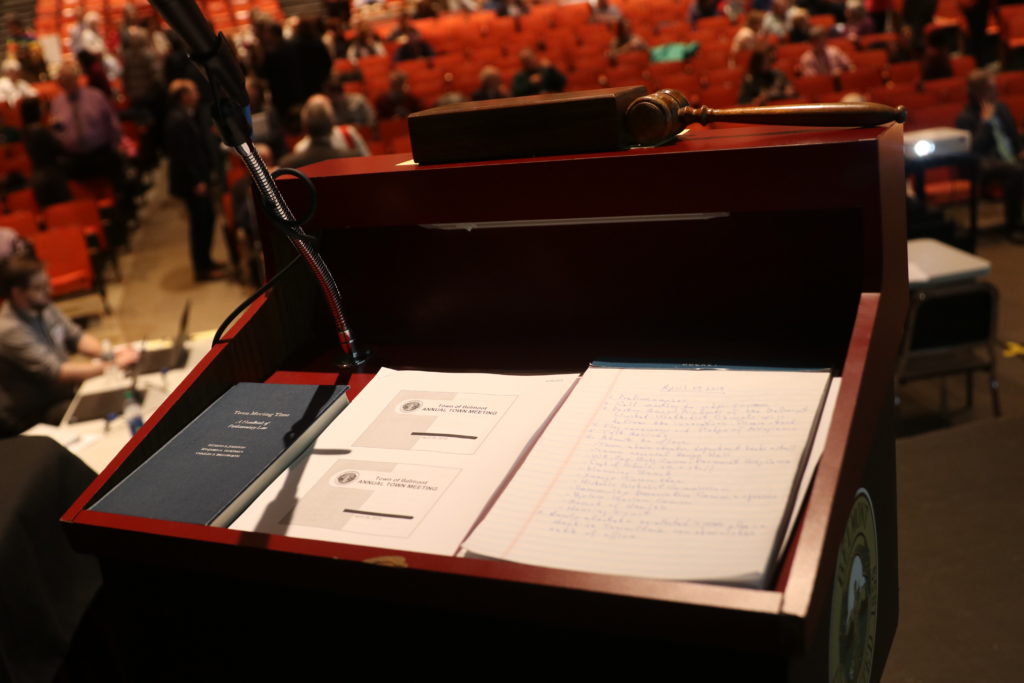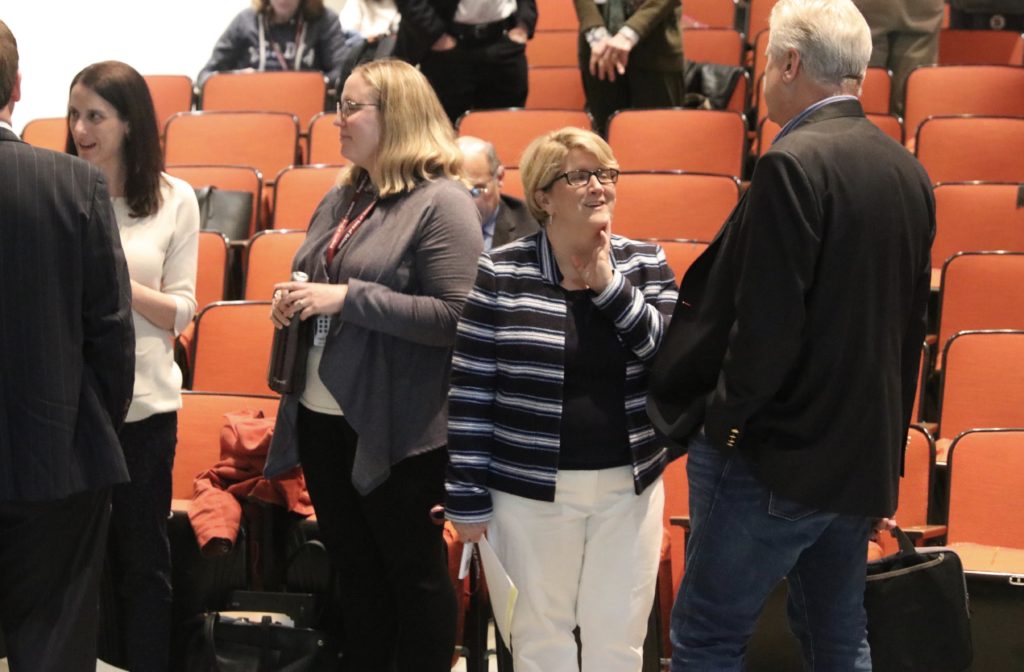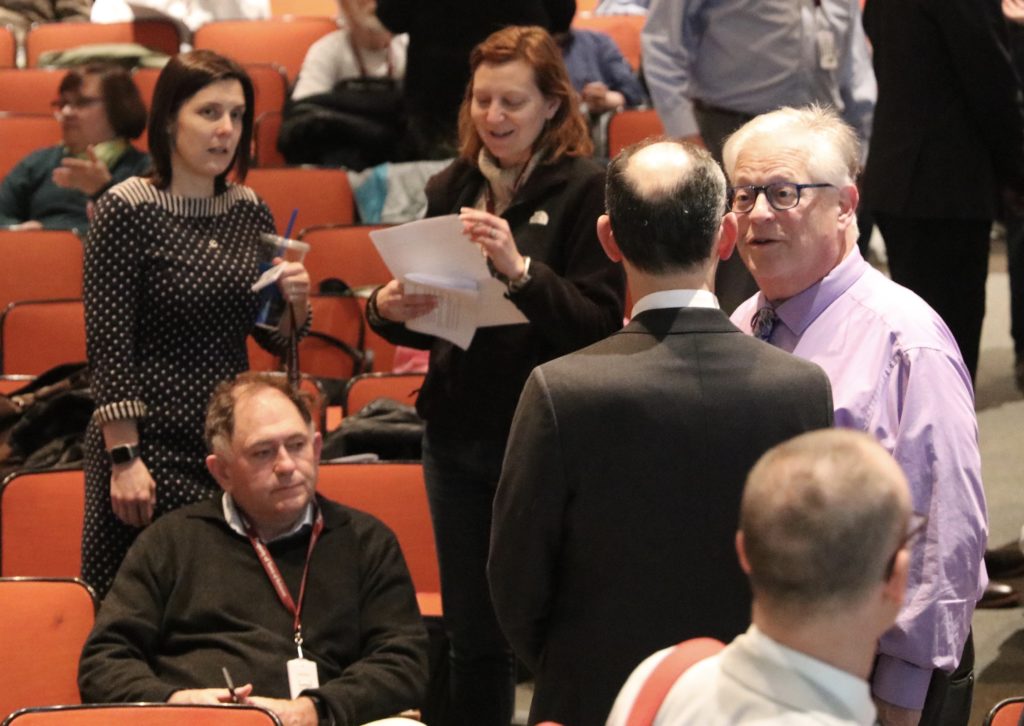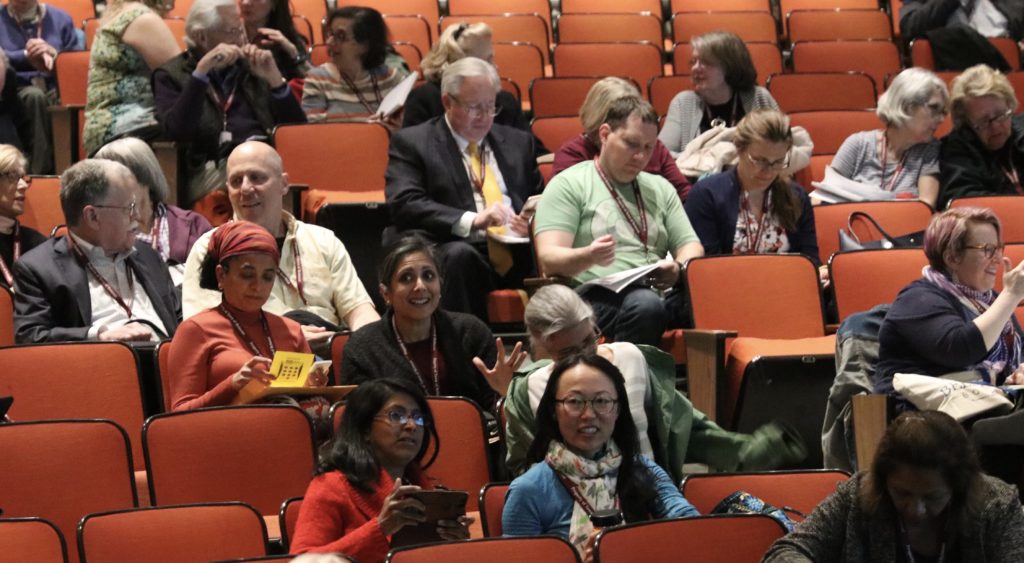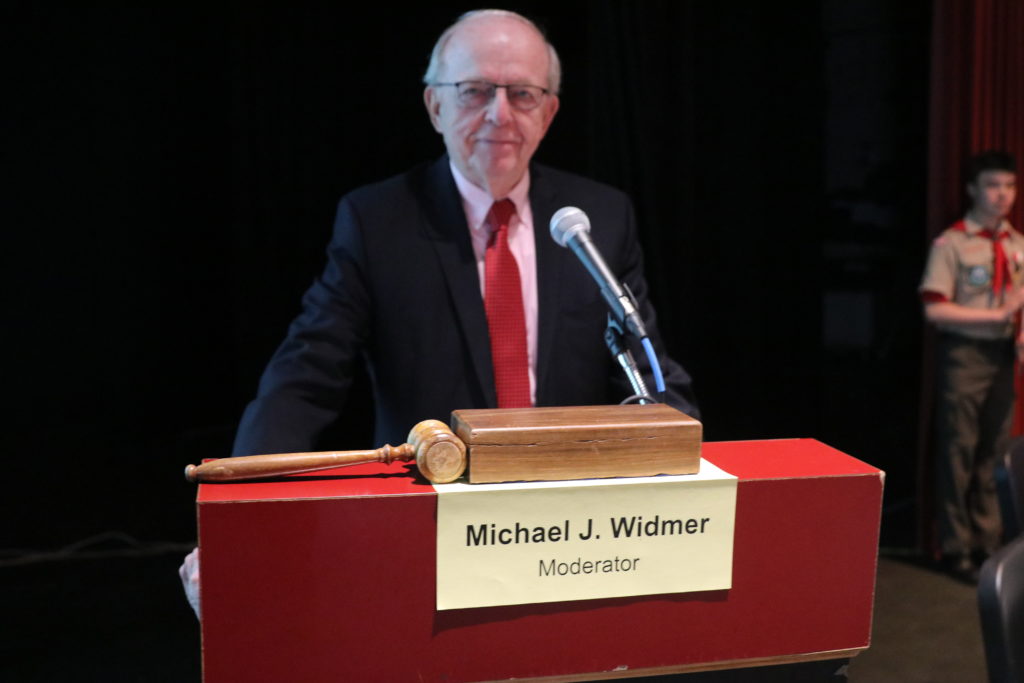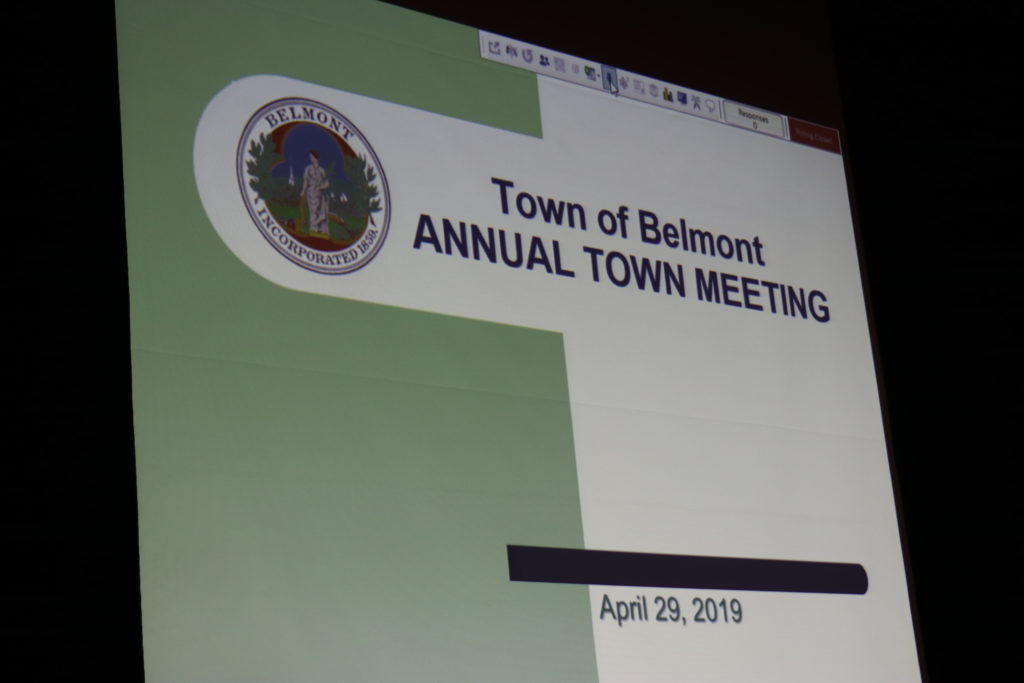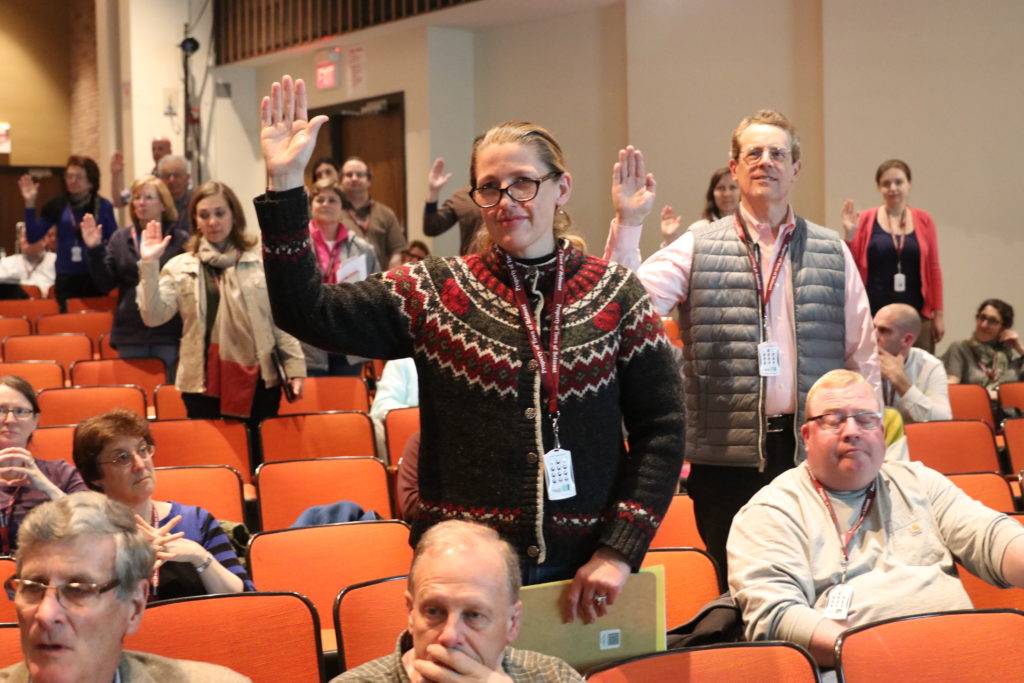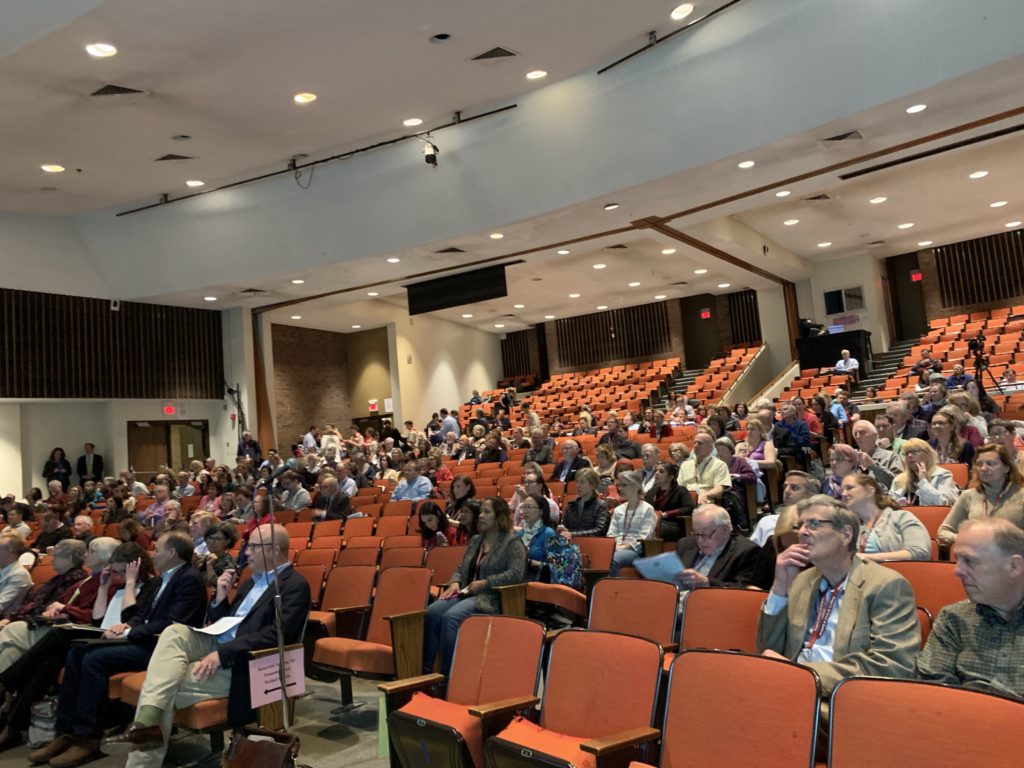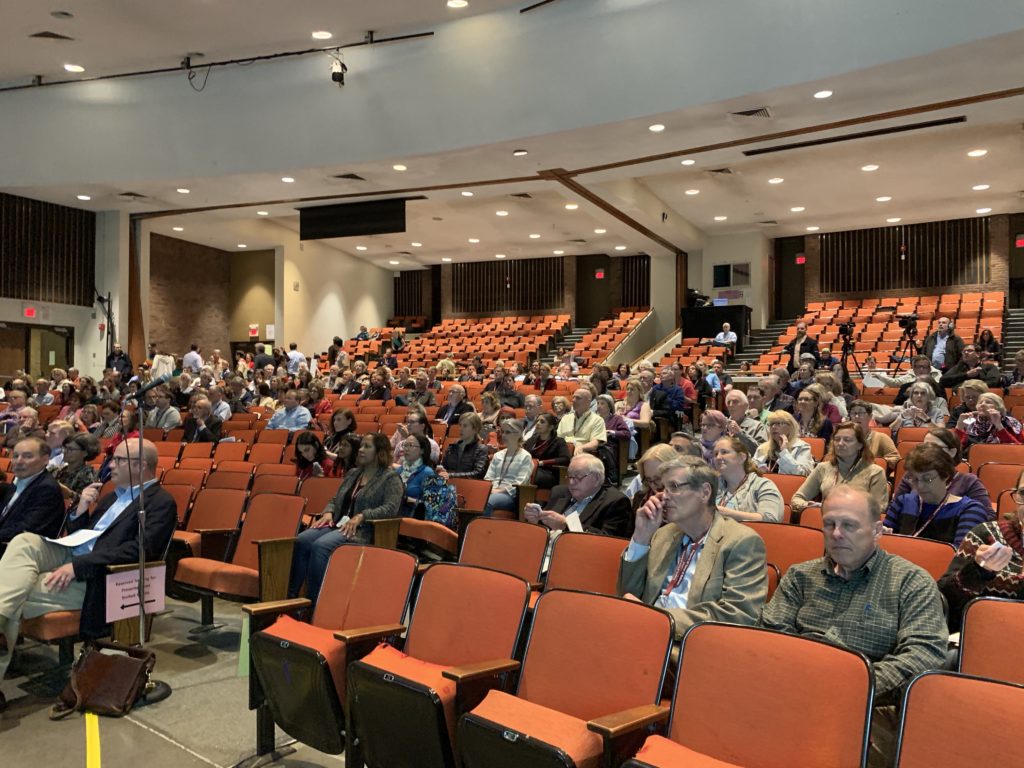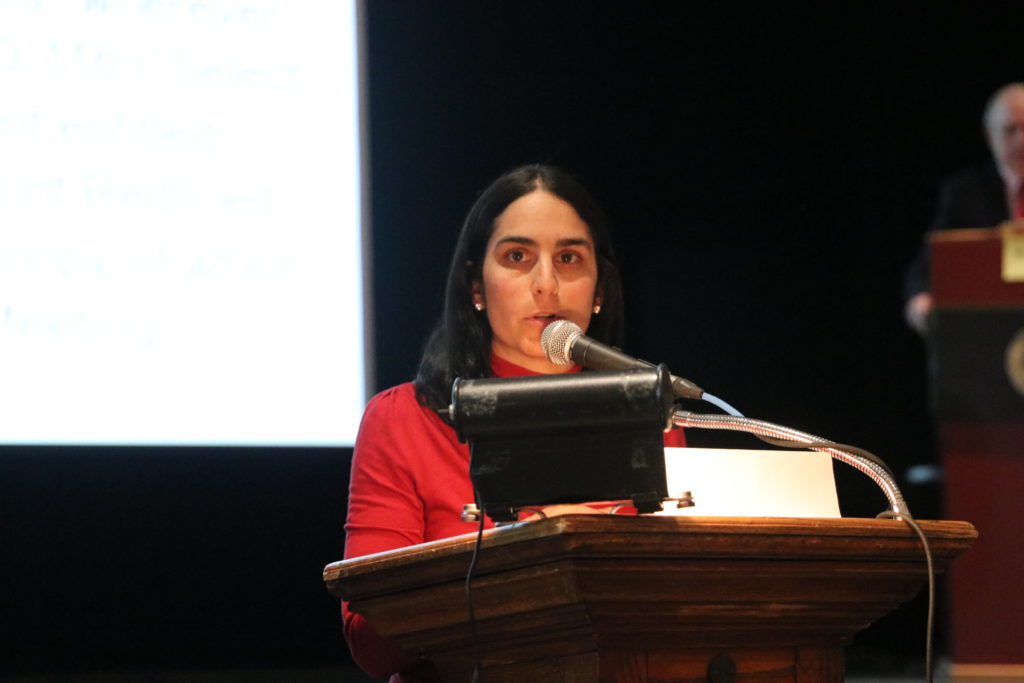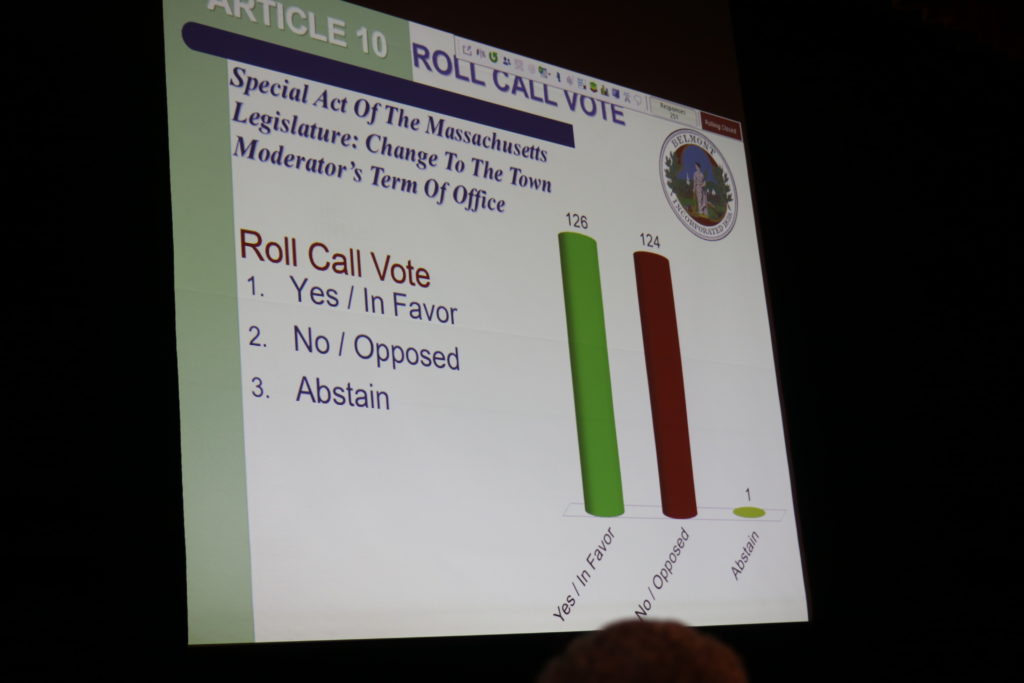Photo: Mike Widmer, Belmont’s Town Moderator.
While the second half of Belmont’s annual Town Meeting is dedicated to all things budgets and numbers, the reconvened gathering of the town’s legislative body tonight, Wednesday, May 29, will have the opportunity to give its “advise and consent” on the contentious matter of roll call votes.
The evening’s appetizer is six questions presented by Town Moderator Mike Widmer to the approximately 290 Town Meeting members to obtain an “informal sense” of the body regarding the parameters and procedures for recorded votes.
During the first session of Town Meeting in April, roll calls were requested on a series of votes including several which the articles passed by sizable margins. While many seeking recorded votes said their goal was greater transparency by elected members, others viewed it as “vote shaming” (there’s an app for that) to point out those who made unpopular votes.
The answers to the questions will be “strictly advisory and non-binding” and used to inform Widmer, the Select Board and “others” whether to consider any potential articles on the topic at a future Town Meeting.
The questions include yes or no answers to when an automatic roll call should be used instead of anonymous vote (all the time vs only on close margins) and what is the threshold percentage or number of members needed to have a roll call and whether to use percentages or a member count.
“Town Meeting seems quite divided on the issue of roll calls, some arguing for roll calls on every article while others wanting to raise the 35-person requirement,” said Widmer.
“I have no way of knowing how many support which position and of course there are lots of alternatives beyond these two positions. I think it will be helpful to get a sense of [Town Meeting] in order to develop a proposal with the Select Board to be presented at the fall Town Meeting,” said Widmer.
While the objective of the pre-meeting Q&A is to find the sense of Town Meeting, the decisions could dampen or accelerate citizens petitions seeking to force the issue.
An article at fall Town Meeting on the future of the hows and whys of roll call voting will likely be driven by the Select Board. And so far the three-member board is keeping an open mind on the issue.
“We haven’t made any decision to take any action at this point,” said Tom Caputo, chair of the Select Board at Tuesday’s groundbreaking for the Belmont Middle and High School. “But we’re pleased that [Widmer] is putting those questions in front of town meeting and looking to get their feedback and we’ll take action from there.”
“I think the [Select Board] wants to make sure that we are helping to support town meeting and ensuring that we are both achieving accountability, but also minimizing some of the more acrimonious activities than we’ve seen in in the last couple of Town Meetings,” he said.
